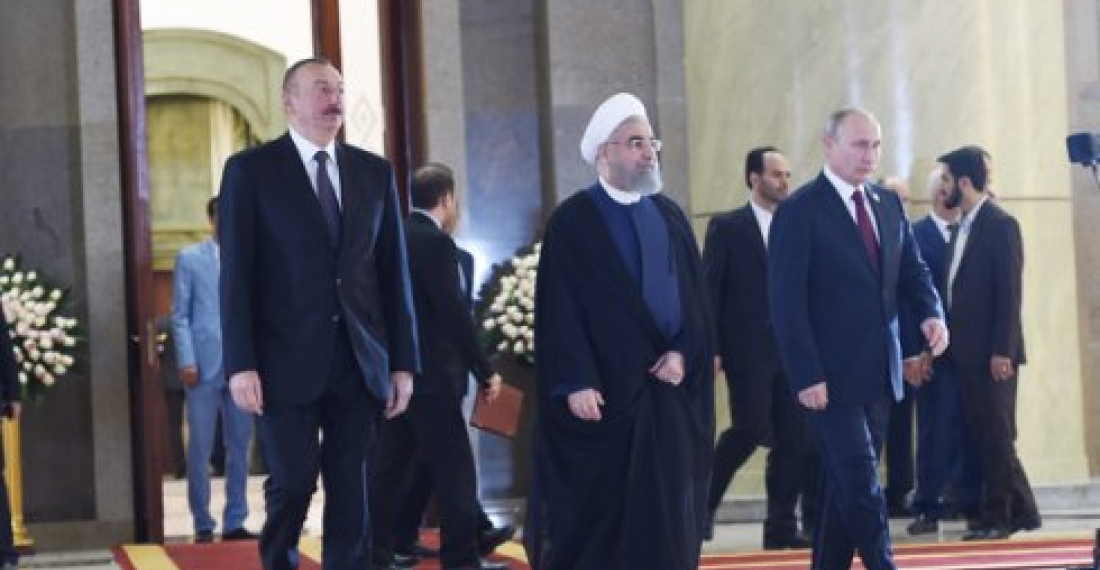Cooperation between Azerbaijan, Iran and Russia is very important to strengthen regional security and stability, President Aliyev of Azerbaijan said on Wednesday in Tehran following a trilateral summit of the leaders of the three countries. Such trilateral meetings and cooperation would lead to a bright future, Aliyev added.
During the trilateral Summit, the presidents focused on continued cooperation to finalise railway and road infrastructure work within the framework of the North-South Transport Corridor - a sea, rail, and road route expected to facilitate and boost exchange of goods between India, Russia, Iran, Europe and Central Asia.
Speaking at the end of the summit, Russian President Vladimir Putin said told reporters, "We have discussed important issues concerning stability, the fight against crime and terrorism, but of course, economic matters topped the agenda". Putin mentioned the North-South Transport Corridor, which "has already been tested, since last year, the first deliveries began from India to Iran, Russia and further on." "This route has proved its economic feasibility and effectiveness," Putin stressed.
Putin confirms readiness to supply gas to Northern Iran via Azerbaijani pipeline
He was hopeful that the summit "was not in vain." "We have actually discussed very important trilateral issues," he added. According to the Russian president, "if we work in an open and benevolent way and, seeking a positive result, then our work will do good to our countries and our people."
The Russian leader pointed out that he was satisfied with the meeting's outcome. He thanked Iran's leadership for the invitation, and expressed gratitude to "the residents of Tehran for the patience they had to have while we were moving around the city." "We could see that it wasn't easy," Putin said referring to the traffic in the Iranian capital.
source: commonspace.eu with IRNA, TASS and APA.
Photo: The leaders of Iran, Russia and Azerbaijan arribve for their trilateral summit in Tehran on 1 November 2017.






